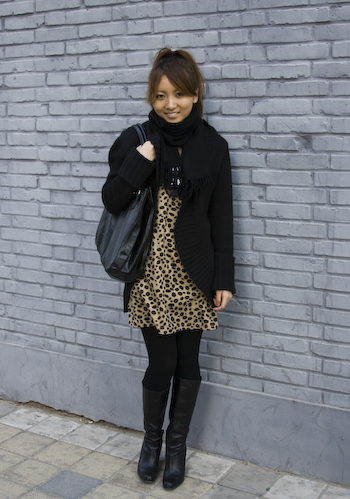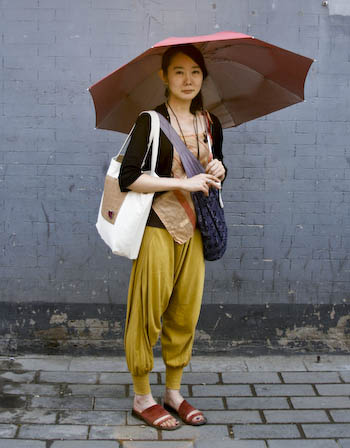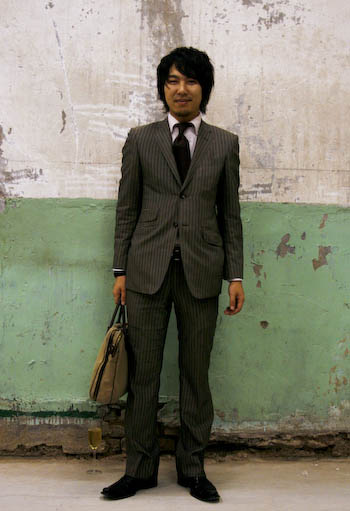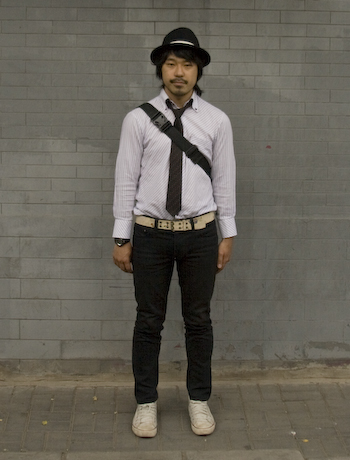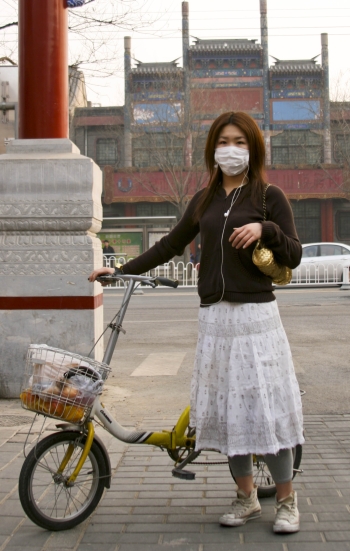
I’ve always had a thing for girls in masks. Maybe it is because I am half Middle Eastern. Masks just make girls look so mysterious. From Chiba, a suburb of Tokyo, Tomumi lives in the hutongs of Beijing and studying at the Central Drama Academy, which she chose because she knew there would be few foreign students thus enabling her to learn Chinese more easily. She much prefers Beijing to Shanghai because Beijing has so much history. She describes Shanghai as a modern city just like Tokyo, but without the great shopping. Returning home in a few months, she will see her Chinese boyfriend, now studying in Tokyo.
我一直喜欢戴å£ç½©çš„女å©å。å¯èƒ½æ˜¯å› 为我是åŠä¸ªä¸ä¸œäººã€‚å£ç½©å°±æ˜¯è®©å¥³å©å看起æ¥å¾ˆç¥žç§˜ï¼ä»Žåƒè‘‰çœŒï¼Œä¸œäº¬çš„一个教区,Tomumi[忘了问她日è¯åå—的汉å—怎么写]ä½åŒ—京胡åŒï¼Œåœ¨ä¸å¤®æˆå‰§å¦é™¢å¦ä¹ ,选了这个大å¦å› 为她知é“外国人少所以她能好好å¦ä¹ ä¸æ–‡ã€‚è·Ÿä¸Šæµ·æ¯”å¥¹æ›´å–œæ¬¢åŒ—äº¬å› ä¸ºåŒ—äº¬æœ‰æ€Žä¹ˆä¸°å¯Œçš„åŽ†å²ã€‚她说上海是个很现代的城市,跟东京没什么太大的区别,就是在东京逛街更好。她ç‰å‡ 个月回家,能è§åˆ°å¥¹çš„现在东京留å¦çš„ä¸å›½ç”·æœ‹å‹ã€‚
